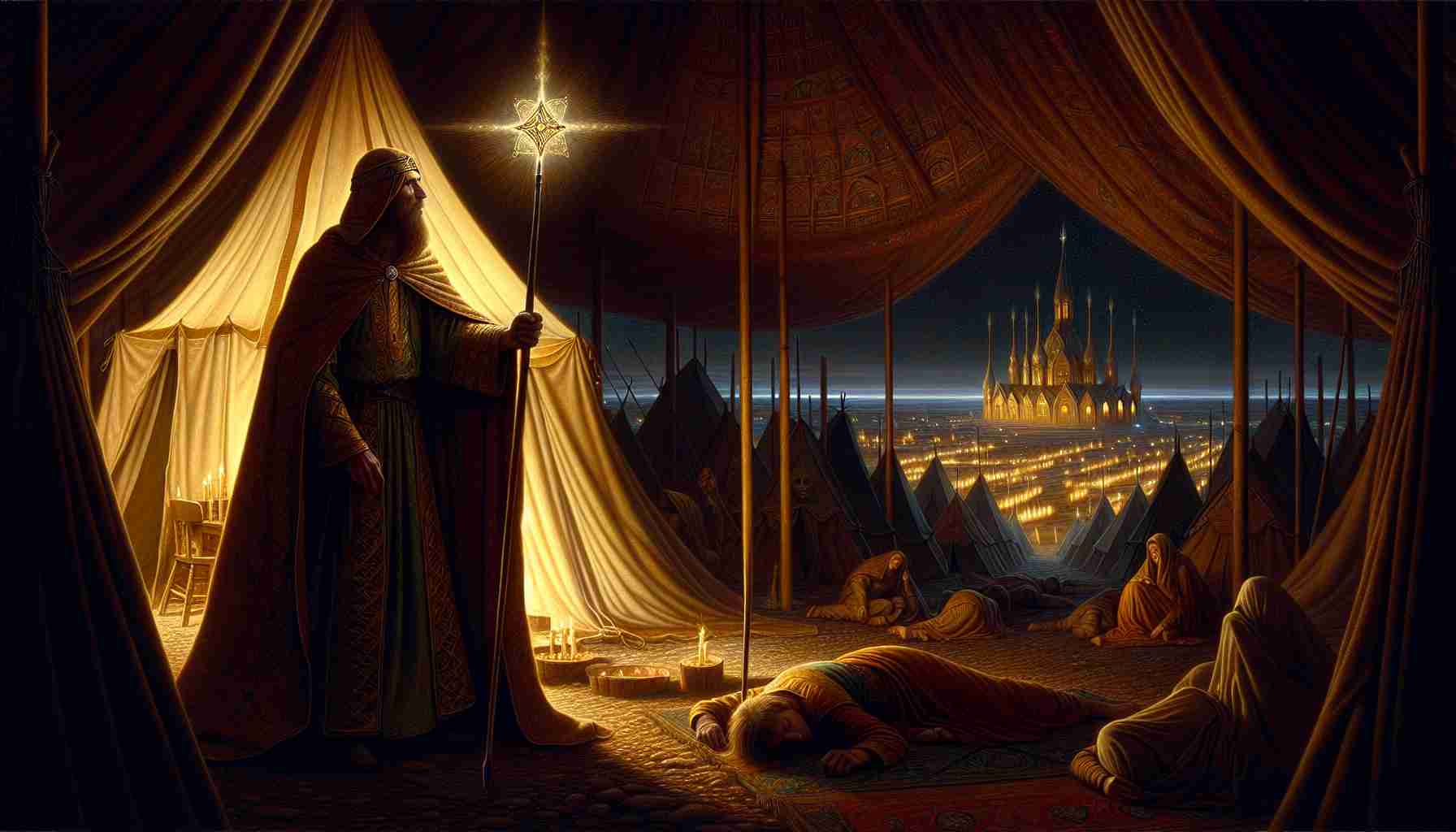

I was cutting reeds by the Jordan River when I heard the wailing start.
At first, I thought it was just another skirmish—another argument among the people. But then the cries spread. Louder. Fiercer. Like grief was moving through the camp, burning everything in its path.
My name is Natan. I'm no leader or warrior—just a tent-maker from the tribe of Reuben. But I remember that day as if fire seared it onto my soul.
Word spread quickly: a plague. I saw men stumble and collapse. Women screamed, clutching lifeless children. The elders gathered near the Tent of Meeting, their faces pale with fear. Even Moses—our leader, the one who had stood at Mount Sinai with God—fell to his knees, crying out for guidance. But we received no answer. Just the terrible silence between one death and the next.
And all the while, we knew why it was happening.
Some among us had turned to Baal Peor—an idol of the Moabites. They ate forbidden food, joined forbidden rituals, and violated the covenant with God. They brought Moabite women into the camp, flaunting it as if it meant nothing. I heard someone say the name of one man—Zimri. He was from the tribe of Simeon. A leader. Bold, arrogant. He brought a Midianite woman straight into his tent, in front of everyone.
Blasphemy. In front of Moses. In front of God.
We stood frozen. I can still feel the shame clinging to my skin like sweat—shame that no one moved. That we watched and waited as the camp unraveled.
Then, the silence was broken by footsteps.
Pinchas—the grandson of Aaron, the High Priest—walked past us. His face was like stone. He held a spear in his hand. No one dared stop him. Not Moses. Not the elders. Not even Zimri.
I didn’t see it myself, but I heard the gasp ripple through the crowd like wind through dry grass. Pinchas went into the tent and, with one strike, ended their lives.
And just like that, the plague stopped.
You could feel it in the air—like a flame that had been snuffed out. The cries slowed. The wind changed. The people began to breathe again.
At first, we were stunned. Some whispered that it was too harsh. Others said it was just. But then God spoke. Through Moses, we learned that God had seen the passion of Pinchas, his fire to protect holiness, and rewarded him with a covenant—a promise of peace. Eternal priesthood for his children.
Something shifted inside me that day.
I had always believed in God, but I thought that belief was something quiet—something you carried, but rarely acted upon. But Pinchas… he showed me what it meant to burn with faith. He risked everything to honor God’s name—not with hate, but with holy purpose.
I still make tents. Still live a quiet life. But whenever cowardice tugs at me, I remember one spear… and how it brought peace.
I was cutting reeds by the Jordan River when I heard the wailing start.
At first, I thought it was just another skirmish—another argument among the people. But then the cries spread. Louder. Fiercer. Like grief was moving through the camp, burning everything in its path.
My name is Natan. I'm no leader or warrior—just a tent-maker from the tribe of Reuben. But I remember that day as if fire seared it onto my soul.
Word spread quickly: a plague. I saw men stumble and collapse. Women screamed, clutching lifeless children. The elders gathered near the Tent of Meeting, their faces pale with fear. Even Moses—our leader, the one who had stood at Mount Sinai with God—fell to his knees, crying out for guidance. But we received no answer. Just the terrible silence between one death and the next.
And all the while, we knew why it was happening.
Some among us had turned to Baal Peor—an idol of the Moabites. They ate forbidden food, joined forbidden rituals, and violated the covenant with God. They brought Moabite women into the camp, flaunting it as if it meant nothing. I heard someone say the name of one man—Zimri. He was from the tribe of Simeon. A leader. Bold, arrogant. He brought a Midianite woman straight into his tent, in front of everyone.
Blasphemy. In front of Moses. In front of God.
We stood frozen. I can still feel the shame clinging to my skin like sweat—shame that no one moved. That we watched and waited as the camp unraveled.
Then, the silence was broken by footsteps.
Pinchas—the grandson of Aaron, the High Priest—walked past us. His face was like stone. He held a spear in his hand. No one dared stop him. Not Moses. Not the elders. Not even Zimri.
I didn’t see it myself, but I heard the gasp ripple through the crowd like wind through dry grass. Pinchas went into the tent and, with one strike, ended their lives.
And just like that, the plague stopped.
You could feel it in the air—like a flame that had been snuffed out. The cries slowed. The wind changed. The people began to breathe again.
At first, we were stunned. Some whispered that it was too harsh. Others said it was just. But then God spoke. Through Moses, we learned that God had seen the passion of Pinchas, his fire to protect holiness, and rewarded him with a covenant—a promise of peace. Eternal priesthood for his children.
Something shifted inside me that day.
I had always believed in God, but I thought that belief was something quiet—something you carried, but rarely acted upon. But Pinchas… he showed me what it meant to burn with faith. He risked everything to honor God’s name—not with hate, but with holy purpose.
I still make tents. Still live a quiet life. But whenever cowardice tugs at me, I remember one spear… and how it brought peace.